Extending shelf life of perishable fruits, solving PHLs …The birth of Jozy Snacks

● Ms Josephine Oduro-Boateng
The issue of Post-Harvest Loss (PHL) has been the bane for positioning agriculture as the backbone of Ghana’s economy.
It has left farmers frustrated since their efforts to produce enough food to ensure Ghana was food sufficient and to boost the local economy has been rendered unproductive.
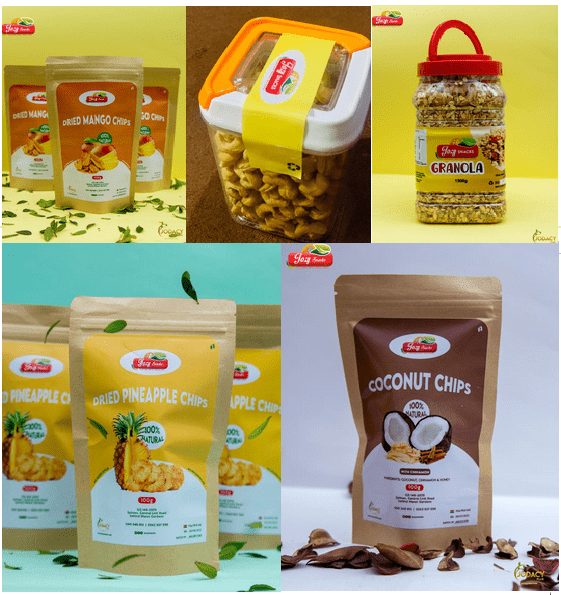
In Ghana’s quest to find a lasting solution to the problem, several initiatives have been proposed over the years; the most recent is the government’s One District, One Factory (1D1F) initiative which seem to have taken a long nap.
However, some private individuals and entrepreneurs, have taken it upon themselves to be innovative and assist in tackling the PHL concern.
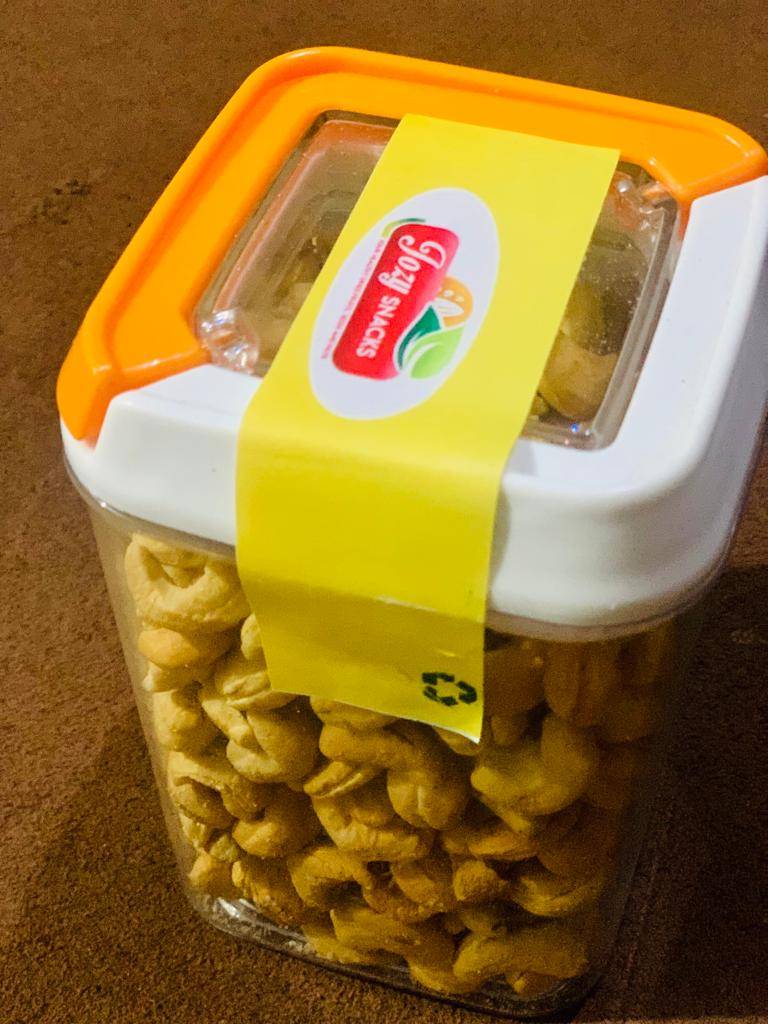
One of such individuals taking the bull by the horn to make something meaningful out of fruits that are highly perishable and prevent PHL is, JODACY PLUS with brand name Jozy Snacks.
Operating from her residence at Spintex in Accra, Ms Josephine Oduro- Boateng who started the business in 2018 with three employees is supplying most shops and supermarkets in Accra with Dried Mango Chips, Dried Pineapple Chips, Coconut Chips, Coconut flakes with Ginger as well as Cashew Nuts and Granola.

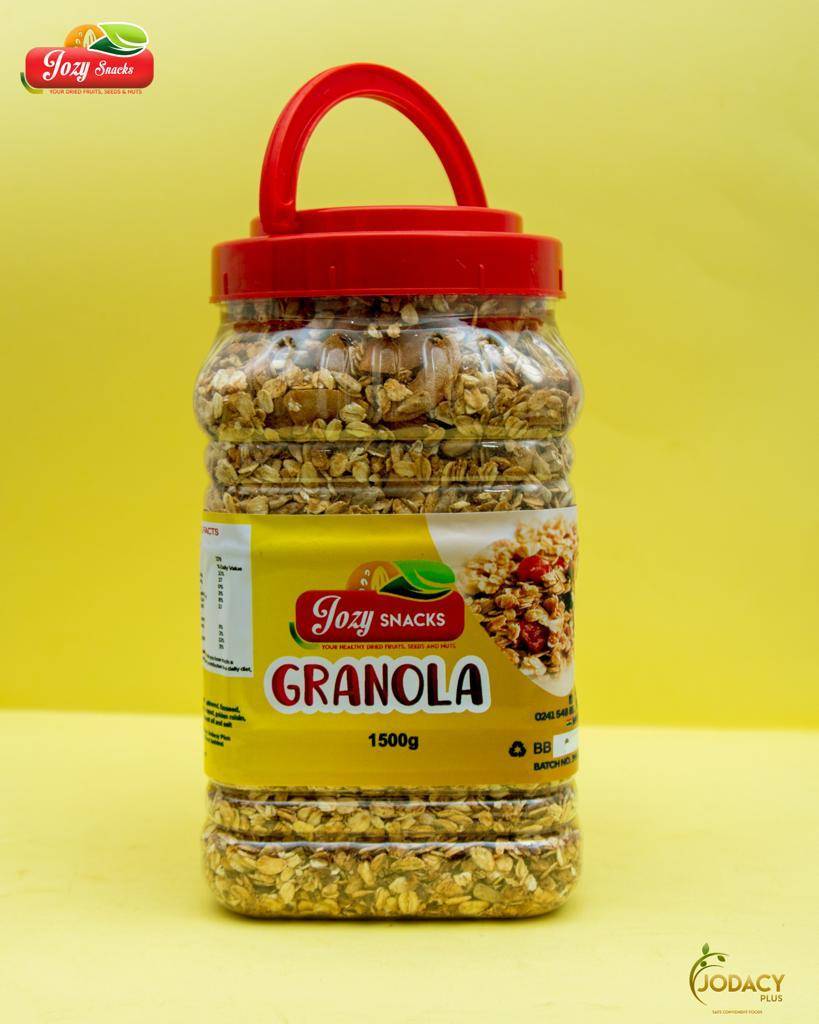
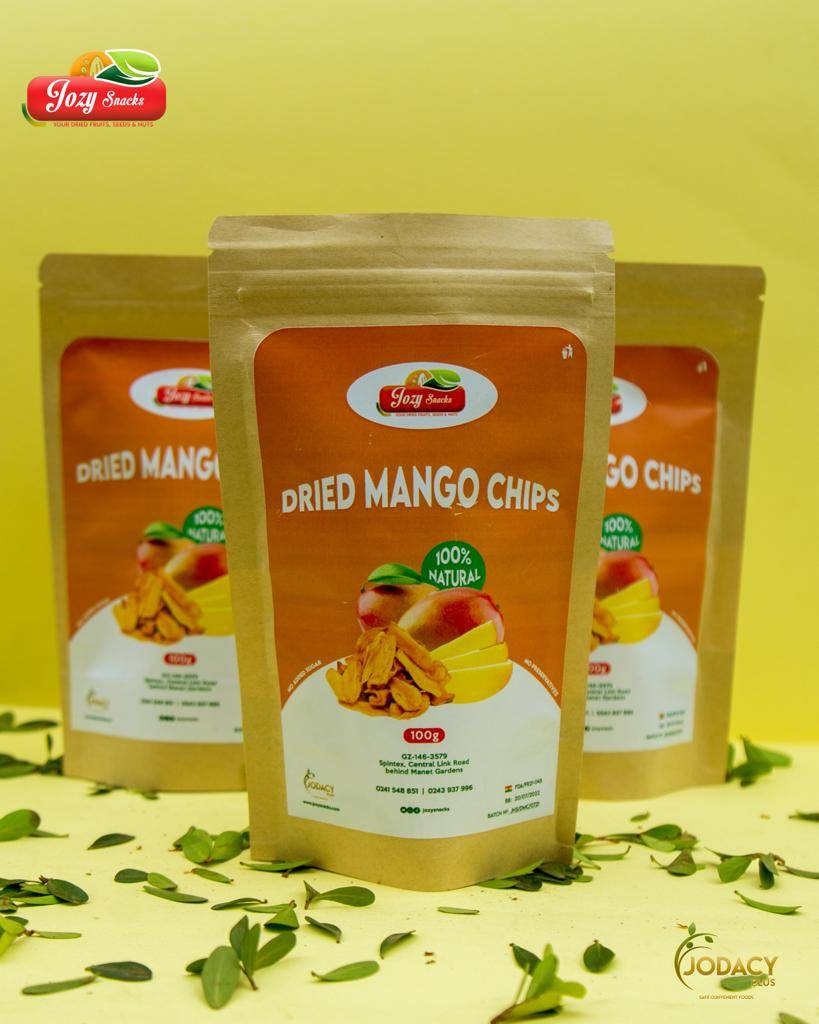
The business, however began with the Dried Mango Chips considering the fact that the fruit is usually cheap while in season and very expensive and scarce when out of season.
Jozy Snacks purchases Mangoes from farms in Somanya in the Eastern Region, processes and makes a very delicious snacks that could last on the shelves for years.
The business started in 2018 on a very informal note with the innovative product sold to mostly friends, church members and people in the neighbourhood.
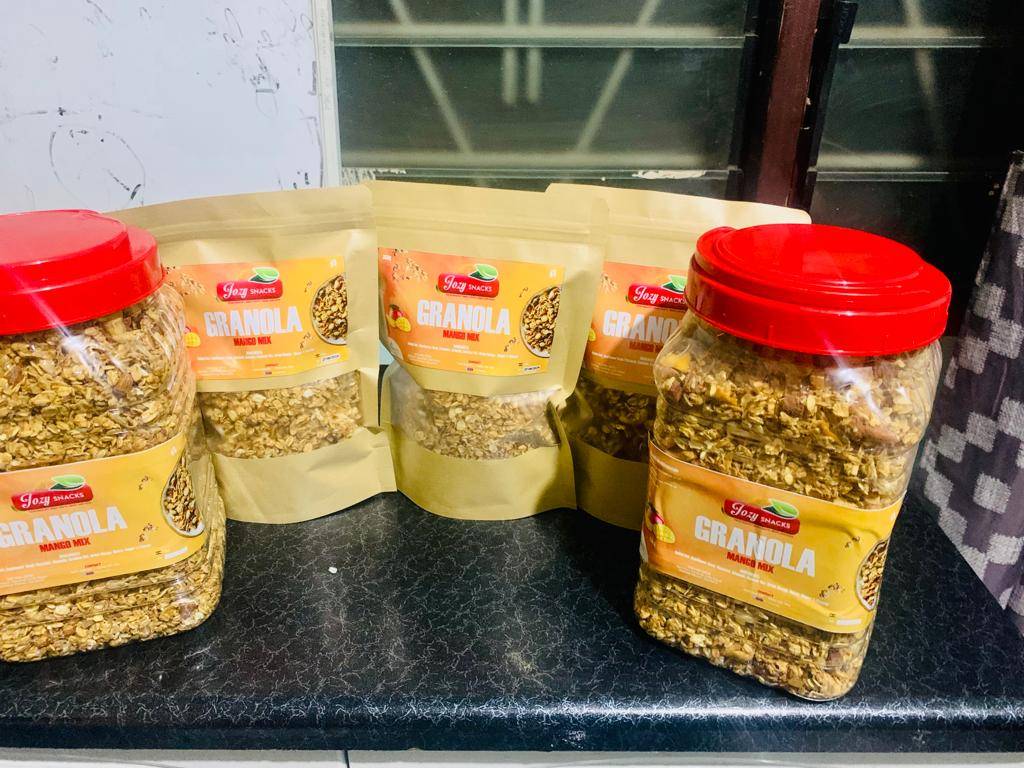
Just after a year when Ms Oduro- Boateng was expecting that the business would take- off and the product to go on sale on a large scale, COVID-19 set in. Unperturbed though, she decided to use the period to push for certification from the Food and Drugs Authority (FDA) and other agencies.
Motivation
She realised after travelling to some villages that when fruits are in season (especially Mangoes), there is a lot of waste on people’s farms.
She had the conviction that dried fruits were the solution to the problem so she purchased a fruit dehydrator at the cost of GH¢6,000 and other items altogether worth, GH¢12,000 to begin the fruit-drying business.

Now she could boast of a good product after going through almost three months of experimentation with the new machines.
It was not long before they had their first contract with Vivo Energy to supply to their shops.
That opened the floodgates for more collaborations to come on board including training from United Nations Industrial Development Organisation (UNIDO) in areas of standards, food safety and management skills as well as costing.
She later secured other partnerships with China Mall, Shell, Exim Bank and other supermarkets and shops where they supply the product.
Capacity
They are currently producing about 1,000 packs of the 100gramme snacks daily and looking forward to expanding with more machines.
Production Process
From the farms, fruits were sorted to remove damaged ones, with the rest stored for ripening for about three days. Then they would be washed three times, cut and arrange into the dehydrator.
They then set the appropriate temperature and allow it to dry, take it out, and make it cool, bag and seal.
Challenges
The main challenge to the company was finding the machine and the technical support since they were not manufactured in Ghana.
Finance, according to Mrs Oduro-Mensah was another huge challenge for the company since there was massive demand for the dried fruits but unable to supply since they do not have the capacity to produce to meet the expected demand.
Another challenge is the fact that accessible funds from banks have very huge interest rates which scares farmers and small businesses away, hence recommending a flexible capital with low interest for young entrepreneurs in agriculture.
Also hindering their successful operations, is the terrible nature of roads in the country which has huge effect on vehicles and affecting the movement of produce from farms to the factory.
The high cost of power (electricity) could also not be left out of the equation as it is having a huge toll on the business.
Education
A product of the University of Ghana who studied Business Administration and majored in Human Resource Management, she surprisingly did not do anything nutrition but naturally love to play with food and combine a lot of things to see the outcome. A pure business student.
Work
She worked with few private companies but now with the Ghana Revenue Authority as a Revenue Officer, Operations.
The fruit-drying business, is however her side business production is usually done in the evening after closing from GRA.
Hobbies
Writing and being creative, she loves music, sings a lot and even attempted being a musician in the past.
Family
The 46-year-old is a single mother of two teenagers (16 and 19). “I’ll go all length to ensure that the children are taken care off,” she said.
Future
In the next five to 10 years, she wants to employ a lot of people, expand the business and export to other countries. The business would also become an institution where people learn to reproduce what she does.
Quote
Her favourite quote is ‘we are too poor to relax’. She realised that most people especially the youth are struggling financially yet, comfortable and do not want to fight their way out of poverty; the reason for some vices in the country.“There is so much money in the agriculture value chain that the youth can take advantage of,” she stressed.
Recommendation
She said, the government must begin to look for entrepreneurs like Jozy Snacks. She is of the view that there is no focus believing that agriculture would have saved the country by taking a lot of people out of poverty when properly invested into to generate the required revenue.
The company could produce and export when given the needed financial boost.
For government, there should be clear-cut policies and an area of focus since the future in Agriculture is very bright.
“It is a big deal and we must all come together to make it work. Our challenge now is capacity as we are not able to produce enough to meet the demand. There should be some technical support for local fabricators to build the machines so we could buy them,” she stated.
With the right support from the government and other organisations, she is optimistic that the objective of positioning Agriculture as the backbone of Ghana’s economy would be achieved.
By Michael D. Abayateye














